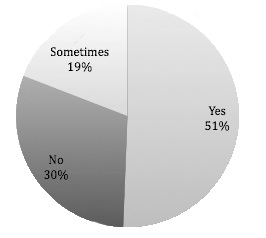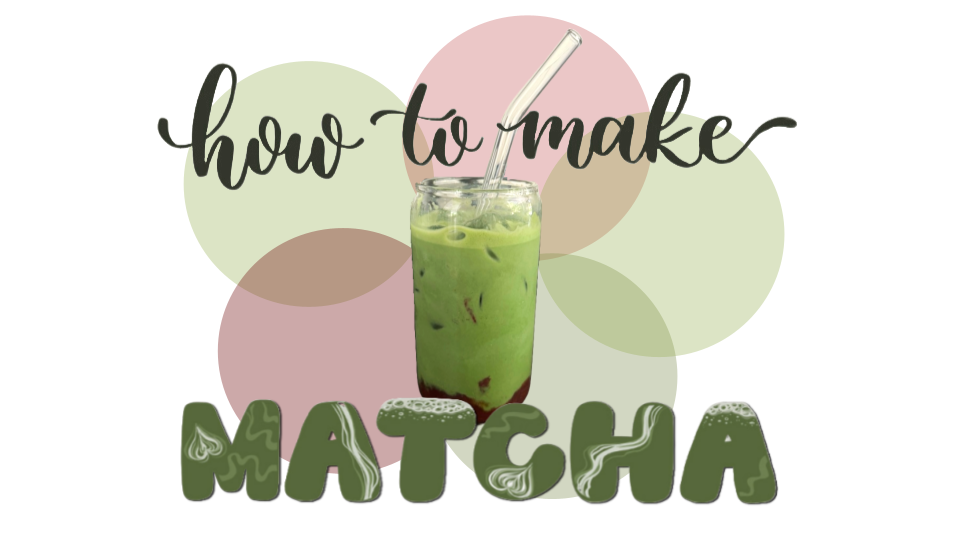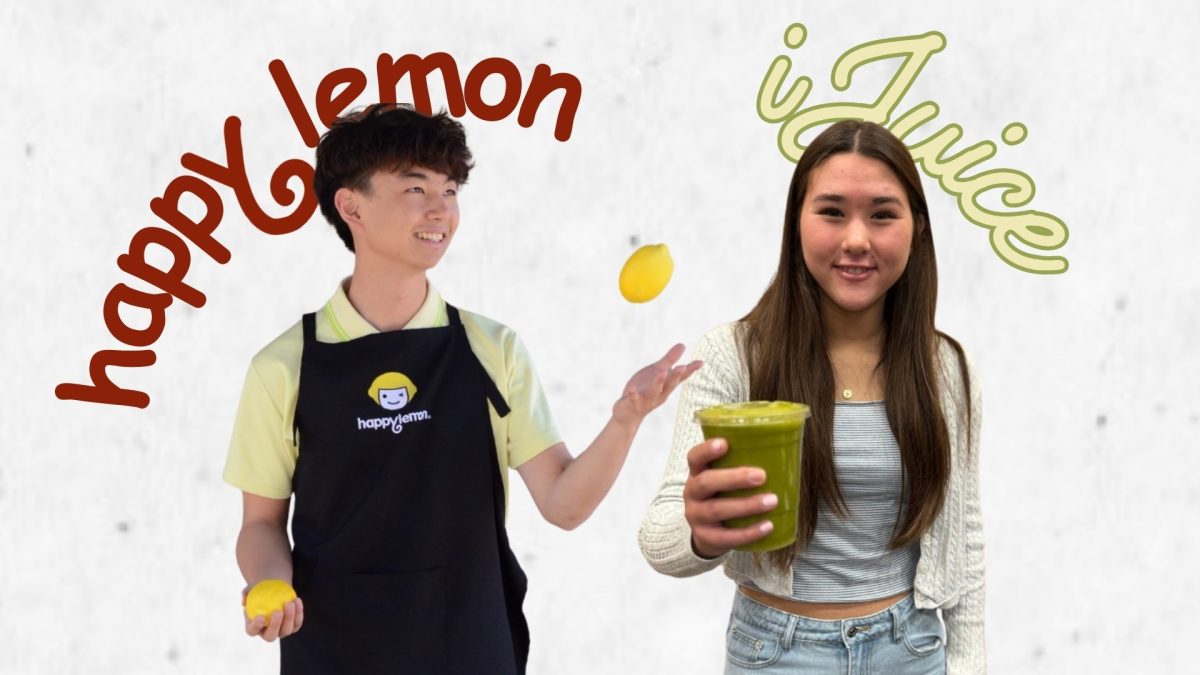Shopping cart in hand, you peruse the aisle of green, red and yellow vegetables. But among the array of colorful produce, a small sign catches your eye: organic.
When choosing what food to buy in the supermarket, the “organic” label may seem appealing. But the big question remains: what exactly makes a food organic, and is it really better for our health to eat organically grown food?
Several students eat organic food, but when asked whether they understood its true value, they seemed either unaware or indifferent.
Michelle Zhang (10) said that her mother purchases organic food, and therefore most of the food she eats is organically grown. However when asked whether she herself would buy food products that were organically grown, she said, “probably… but why? I don’t know.”
Others seem to believe that eating organic means simply, “no pesticides.” Carmen Das-Grande (12) feels that eating locally grown produce may be just as healthy as eating organically.
“Well, I think either one is good. Supporting local famers is good because chances are they don’t use pesticides that big companies do,” Carmen said.
In reality, though, there is a lot more to organic food than just healthy produce grown without chemicals.
In order for a food item to be certified as organic, it must meet the standards established by the U.S Department of Agriculture (USDA). There are four main categories, each with subcategories that classify these foods as organic. These categories: the processing of the food and whether it has a detrimental effect on the environment, the need for organic production, the compatibility of the substance with organic production practices, and the commercial supply of an agricultural substance as organic, fragile, or potentially unavailable.
Each category has an exhaustive list of questions that must be answered in order for a food to become part of the National Organic Program. Any food manufacturer who labels and sells products as organic must be USDA certified; the only exceptions are for producers who sell less than $5,000 annually in organic food.
Dr. Preston Maring, Associate Physician in Chief at the Kaiser Oakland Medical Center, established the Friday Fresh Farmers’ Market in various Kaiser Permanente facilities. Dr. Maring encourages people to eat organic because it is not only better for their own health, but it is also safer for the farmers to be able to cultivate crops without the use of potentially detrimental chemical fertilizers.
“Some people never even eat fruits and vegetables, and they eat fast food, junk food, and stuff out of boxes; for them the most important thing is
to start eating fruits and vegetables of any kind whether they’re organic or not,” Dr. Maring said. “But once you encourage people to start eating good fruits and vegetables because that’s healthy for them, that’s the time to say […] organic is a better option.”
Although some people may feel that eating organically may cause a dent in their wallet, Dr. Maring believes the opposite.
“I know the organic, hormone-free milk is more expensive, but if you look at what you spend on fast foods and […] restaurants and look at the whole big picture […] having a little bit more fun in the kitchen can save you enough money to buy good healthy food,” Dr. Maring said.
Danae McLaughlin, Assistant Chef at the Upper School, even said that sometimes, organic food is just as expensive as other produce.
“You’re going to find a lot of food [where] organic is a little more expensive, but if there’s a really good crop, you might find that they may even be cheaper. It just depends. I would say 60 percent of the time organic food is more expensive,” McLaughlin said.
The kitchen on campus strives to buy most of its produce organically, but sometimes the food does not meet the quality of other local produce.
“We’ll get some organic products in that just don’t look very nice,” she said.
The three considerations that the kitchen staff takes into account when buying food products are the quality, the availability, and how seasonal it is.
Since the kitchen staff is trying to be environmentally aware of the distance food must travel, McLaughlin said, “when you talk about trying to go all organic, it’s pretty hard to do… it’s not ideal.”


















![“[Building nerf blasters] became this outlet of creativity for me that hasn't been matched by anything else. The process [of] making a build complete to your desire is such a painstakingly difficult process, but I've had to learn from [the skills needed from] soldering to proper painting. There's so many different options for everything, if you think about it, it exists. The best part is [that] if it doesn't exist, you can build it yourself," Ishaan Parate said.](https://harkeraquila.com/wp-content/uploads/2022/08/DSC_8149-900x604.jpg)




![“When I came into high school, I was ready to be a follower. But DECA was a game changer for me. It helped me overcome my fear of public speaking, and it's played such a major role in who I've become today. To be able to successfully lead a chapter of 150 students, an officer team and be one of the upperclassmen I once really admired is something I'm [really] proud of,” Anvitha Tummala ('21) said.](https://harkeraquila.com/wp-content/uploads/2021/07/Screen-Shot-2021-07-25-at-9.50.05-AM-900x594.png)







![“I think getting up in the morning and having a sense of purpose [is exciting]. I think without a certain amount of drive, life is kind of obsolete and mundane, and I think having that every single day is what makes each day unique and kind of makes life exciting,” Neymika Jain (12) said.](https://harkeraquila.com/wp-content/uploads/2017/06/Screen-Shot-2017-06-03-at-4.54.16-PM.png)








![“My slogan is ‘slow feet, don’t eat, and I’m hungry.’ You need to run fast to get where you are–you aren't going to get those championships if you aren't fast,” Angel Cervantes (12) said. “I want to do well in school on my tests and in track and win championships for my team. I live by that, [and] I can do that anywhere: in the classroom or on the field.”](https://harkeraquila.com/wp-content/uploads/2018/06/DSC5146-900x601.jpg)
![“[Volleyball has] taught me how to fall correctly, and another thing it taught is that you don’t have to be the best at something to be good at it. If you just hit the ball in a smart way, then it still scores points and you’re good at it. You could be a background player and still make a much bigger impact on the team than you would think,” Anya Gert (’20) said.](https://harkeraquila.com/wp-content/uploads/2020/06/AnnaGert_JinTuan_HoHPhotoEdited-600x900.jpeg)

![“I'm not nearly there yet, but [my confidence has] definitely been getting better since I was pretty shy and timid coming into Harker my freshman year. I know that there's a lot of people that are really confident in what they do, and I really admire them. Everyone's so driven and that has really pushed me to kind of try to find my own place in high school and be more confident,” Alyssa Huang (’20) said.](https://harkeraquila.com/wp-content/uploads/2020/06/AlyssaHuang_EmilyChen_HoHPhoto-900x749.jpeg)









